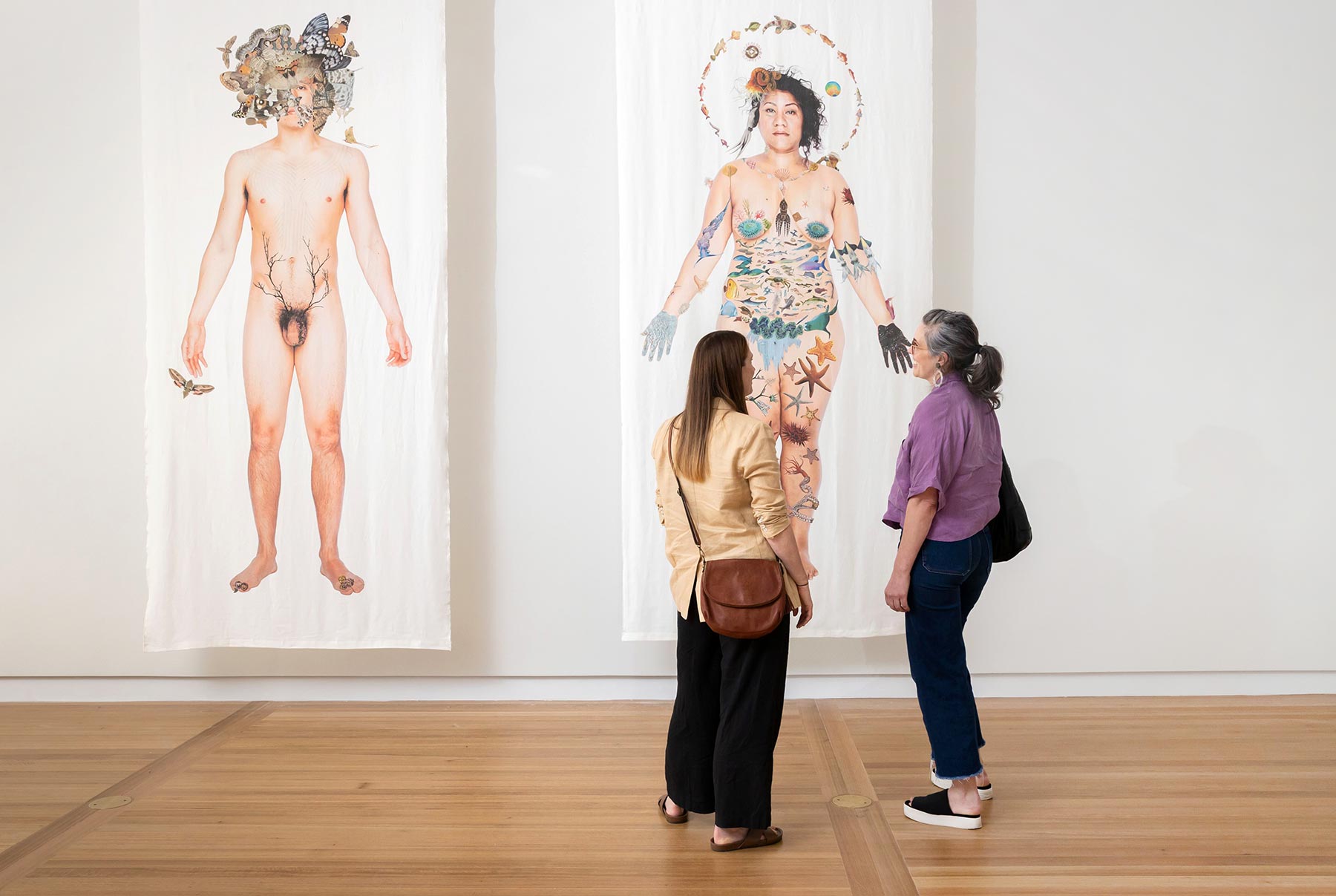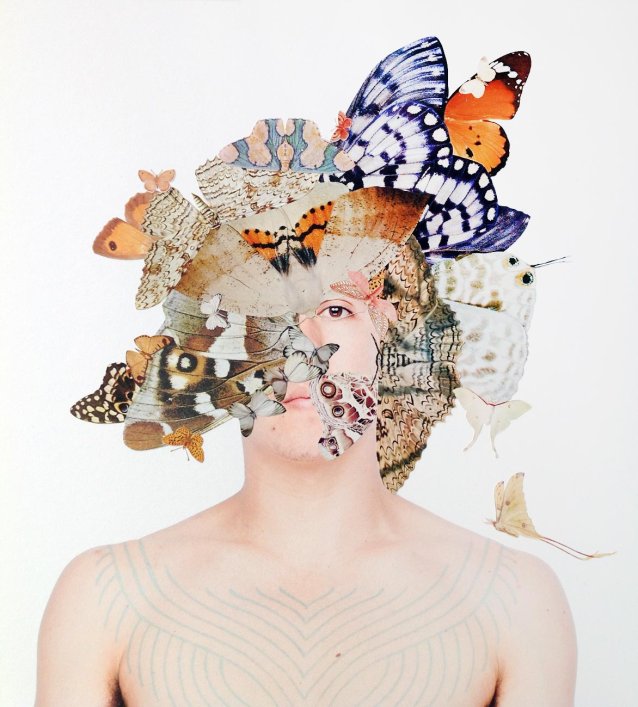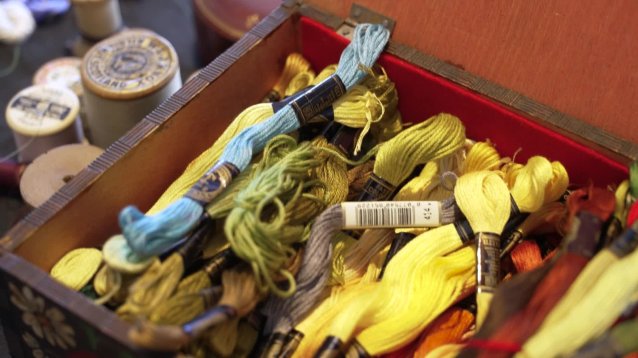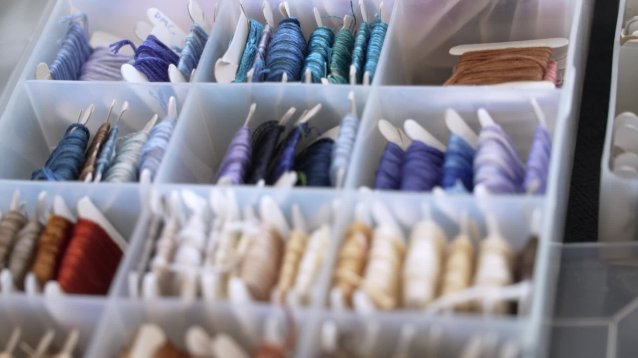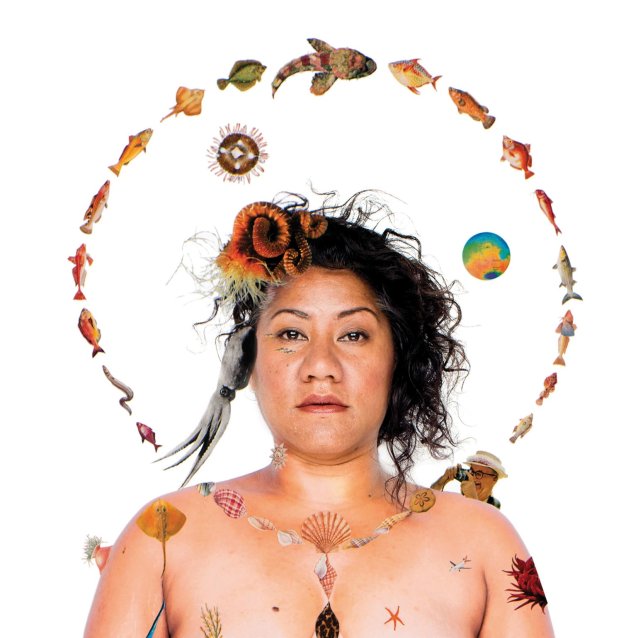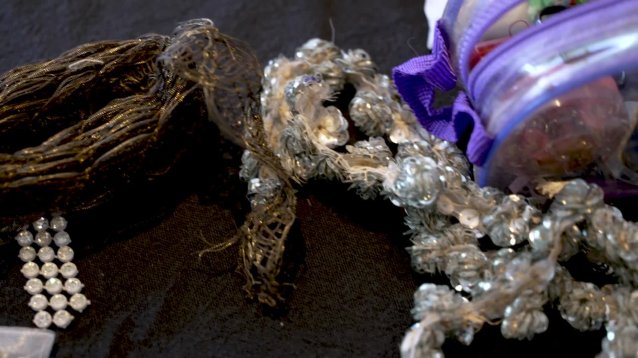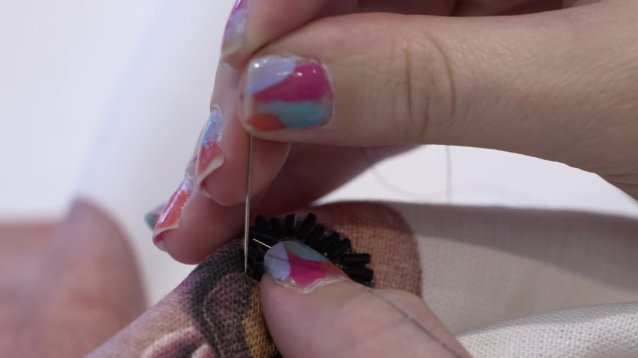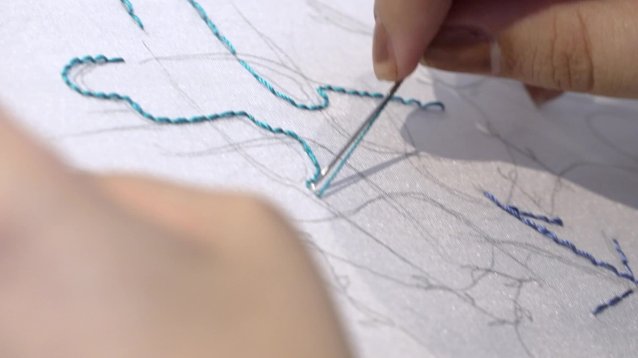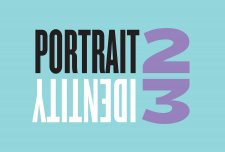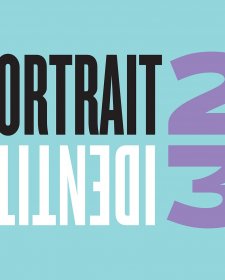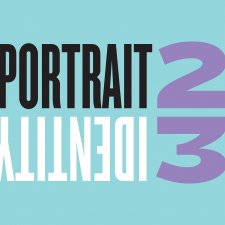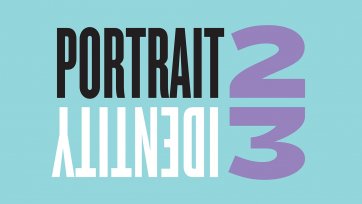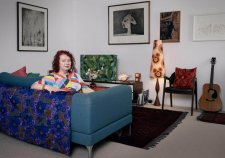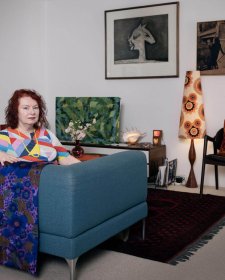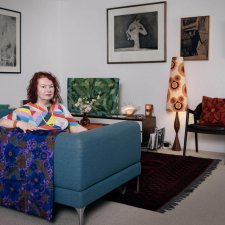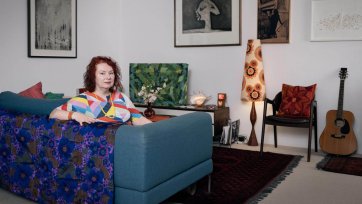Once our group has assembled, we settle around another table, this one much longer and in the centre of the room.
Deborah explains that the two portraits in this exhibition are part of A stitch in time, an unfolding evolution of participatory portraits.
Begun in 2013, they were made through workshops; revisited now, they will be augmented and embellished in sewing circles.
Deborah tells us that ours is the first group to work on the portrait of Latai Taumoepeau which lies on this table under a piece of cloth.
Before we reveal the portrait, before we begin sewing, Deborah wants us to watch an interview she recently recorded with Latai.
In this recording projected on a large screen, Latai speaks to us of the accelerated impact of climate change she has noticed in the ten years since her portrait was first taken.
She speaks of the vulnerable, frontline communities who are the first and most affected.
She speaks of those who will have to leave their homes, who have already left their homes, of a loss of culture, language and the bodies of ancestors.
She speaks of an increase in catastrophic weather events, of deep sea mining, of the intrusion of saltwater into food gardens.
She speaks of Government inaction and of unrelenting racism.
She speaks of community organisations that didn’t exist before, of foreign aid and the responsibility we have to one another.
She speaks of her desire not to stop making the same sort of art and to instead shift her practice toward social engagement.
She speaks of moving to Tonga, of spending time on Country, of her need to do that while it is still possible.
When the recording has finished we move as a group to yet another table, one with paper and pencils.
Deborah encourages us to think about how we might represent what we have heard, how we might transform what has been articulated into needle and thread.
Through this process, she says, we seek to account for a decade of bodily transformation and lived history.
I think about the movement of water.
I think about salt crusts and calcification.
I think about loss and elimination.
Of what these things might look like.
How I might shape them with my hands.
As we share our ideas with one another, Deborah weaves them together and makes a plan.
Together we remove the large piece of cloth that until now has covered Latai’s portrait.
